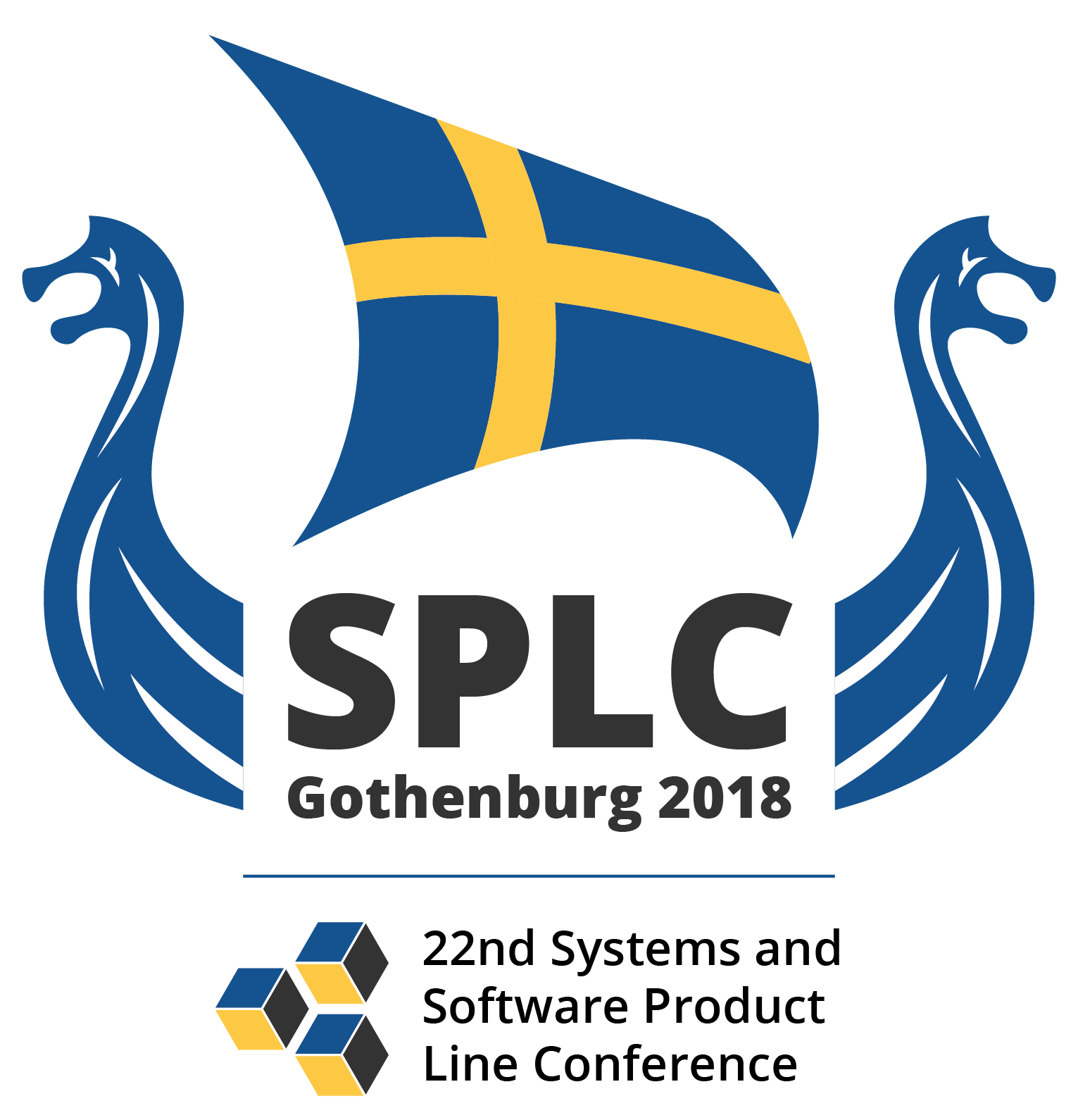CONTEXT
The Systems and Software Product Line Conference (SPLC) is a premier forum where researchers, practitioners, and educators can present and discuss the most recent ideas, trends, experiences, and challenges in the area of software and system product lines engineering. Conference events include opportunities to hear industry leaders’ real-world experiences and researchers’ latest ideas, and to learn from both.
For the research track, we invite high quality submissions describing original and unpublished results in all areas related to systems and software product line engineering, configurable systems and variability management.
IMPORTANT DATES (AoE)
Abstract submission: March 16, 2018
Paper submission: April 3, 2018 (originally was March 23, 2018)
Notification: May 9, 2018
Camera-ready papers: July 2, 2018
Conference: September 10-14 , 2018
TOPICS
Topics include but are not limited to the following:
- Requirements engineering and domain analysis
- Business process management, economics and organizational issues of SPL engineering
- Architecture, design, and implementation of SPLs
- Variability management and modeling
- Advances in testing (e.g. selection, prioritization, generation) of configurable systems and SPLs
- Analysis techniques such as model-checking, formal methods of configurable systems and SPLs
- Non-functional properties and performance for SPL engineering
- Multi product lines, ecosystems, product lines of product lines, systems of systems
- Mining and reverse engineering of variability
- Dynamic, adaptive, and reconfigurable systems
- End-user concerns and usability of SPLs
- Open source SPLs, software ecosystems, and supply chains
- Domain-specific (modeling) languages and SPLs
- Education and SPL (e.g., teaching, training, disemination)
- Empirical evaluations of all topics above (user studies, substantial case studies, controlled experiments, surveys, rigorous measurements)
We strongly encourage papers that connect SPL engineering to other scientific communities (e.g., artificial intelligence, security, adaptive systems, business process management, software mining) or application domains (e.g., mobile phone ecosystems, big data, 3D printing).
SUBMISSIONS/PUBLISHING
- Full papers describing original results of conceptual, theoretical, empirical, and experimental research. The papers in this category must rely on theoretical and/or empirical evaluation.
The page limit is 10 pages for full papers and 5 pages for short papers, not including references, which should at most take 2 extra pages. Submissions must follow the ACM proceedings format and will be reviewed by at least three members of the SPLC 2018 research track program committee following high scientific standards.
The ACM styles have changed recently, and all authors should use the official 2017 ACM Master article template.
Latex users are indicated to use the “sigconf” option, so they are recommended to use the template that can be found in “sample-sigconf.tex”. In this way, the following latex code can be placed at the start of the latex document:
\documentclass[sigconf]{acmart}
\acmConference[SPLC'18]{22nd International Conference on Software Product Line}{10--14 September, 2018}{Gothenburg, Sweden}
The SPLC proceedings will be published in the ACM Digital Library. SPLC is ranked as a top conference.
At least one author of each accepted submission must register and attend SPLC 2018 in order for the submission to be published.
Submissions should be sent using EasyChair: https://easychair.org/conferences/?conf=splc2018
ARTIFACT EVALUATION
Authors of accepted research papers are invited to submit for evaluation and publication artifacts associated with the paper. According to ACM’s “Result and Artifact Review and Badging” policy, an “artifact” is “a digital object that was either created by the authors to be used as part of the study or generated by the experiment itself […] software systems, scripts used to run experiments, input datasets, raw data collected in the experiment, or scripts used to analyze results”.
Accepted artifacts will receive one of the following badges in the first page of the paper, table of contents, and in the ACM Digital Library:
- Artifacts Evaluated – Functional: The artifacts are complete, well-documented and allow to obtain the same results as the paper.
- Artifacts Evaluated – Reusable: As above, but the artifacts are of such a high quality that they can be reused as is on other data sets, or for other purposes.
The presentation of a paper associated with an accepted artifact will get 5 extra minutes. The authors must ensure that the artifacts are available from a stable URL or DOI. Please note that these badges exclude proprietary data or tools.
Authors of accepted papers who want to publish an artifact should do that via Easychair (select the Research Artifacts track) by submitting a PDF that contains a stable URL (or DOI) to the artifacts and that explains the steps and general instructions to execute/analyze the artifact. The deadline for submission is the paper camera-ready deadline.
POSTERS
Authors of accepted research papers and selected rejected papers will also have the opportunity to present a poster at the conference.
CHAIRS
